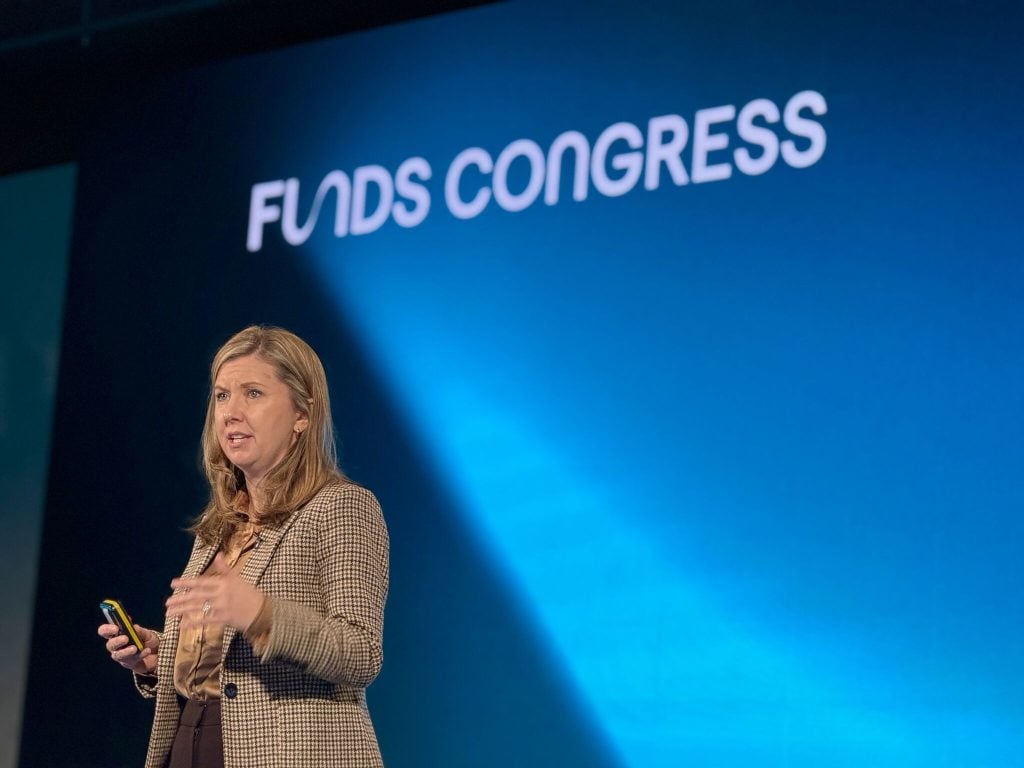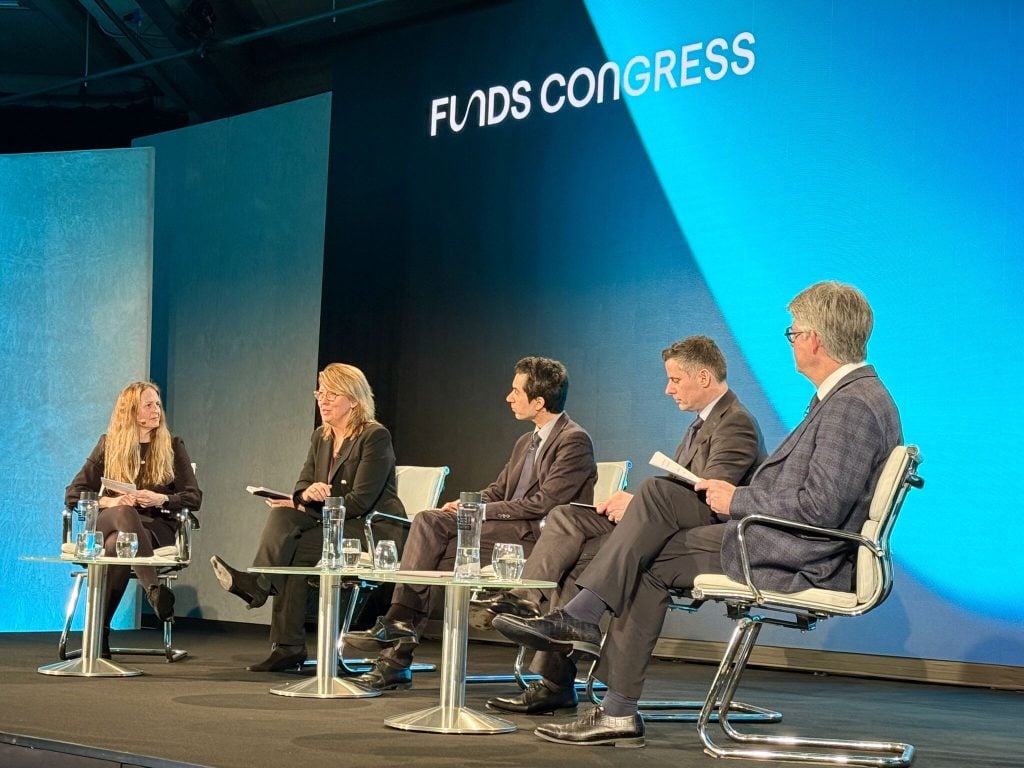Adapt or fade away? That was the unspoken theme at Funds Congress 2025. As digital transformation accelerates and market uncertainty looms, asset managers face a defining moment. The firms that thrive will be those that turn disruption into opportunity. Here’s what you need to know.
Pressure on margins: Differentiation is key
Fee compression remains a central concern for asset managers, driven by the rise of passive investing and ETFs. As competition intensifies, it’s becoming essential for firms to differentiate themselves. Whether through innovative distribution strategies, building stronger partnerships, or focusing on niche markets, the need to stand out has never been greater. Private assets continue to attract interest, but the competitive landscape is fierce, and due diligence demands are increasing. For middle-market firms, the challenge is balancing competition from larger players while maintaining the agility of smaller, specialist firms.
Technology: The dual impact of disruption and opportunity
Technology is reshaping asset management in real-time. While digital transformation opens up new efficiencies and market opportunities, it also requires significant investment and flexibility. A standout discussion at the conference was the potential of tokenisation for alternative assets. With its promise of enhanced access, transparency, and streamlined post-trade processes, it’s a potential game-changer. But there are still obstacles to overcome—regulatory uncertainty, integration challenges, and cybersecurity concerns. Meanwhile, artificial intelligence is making waves across data analysis, client engagement, and risk management, creating exciting new ways to deliver personalised solutions. The key takeaway? Firms that don’t embrace these advancements risk falling behind.
Macroeconomic uncertainty and investment strategy
The economic environment continues to be unpredictable, with inflation, geopolitical risks, and market volatility influencing investment decisions. Karen Ward, Chief Market Strategist for EMEA at J.P. Morgan Asset Management, highlighted that while political events, such as changes in US policy, may cause short-term disruptions, the fundamentals of the market will ultimately prevail. A long-term focus, particularly on technology, is a smarter strategy than reacting to short-term shifts. With market concentration, especially in US tech, raising concerns, many investors are looking to diversify into alternative assets like infrastructure and timber as stabilisers during volatile times.

Karen Ward of J.P. Morgan Asset Management at Funds Congress 2025.
Image: Image: Dechert LLP – LinkedIn
Reframing active management
The debate between active and passive investing remains central to the industry’s dialogue. Passive strategies continue to dominate, but their growing reliance on a few tech giants is creating concerns about systemic risk. There’s still a strong case for active management, particularly in uncovering hidden opportunities, navigating complexity, and managing concentrated risks. Building well-balanced portfolios that blend active, passive, and private market strategies is becoming a key differentiator. Now more than ever, asset managers need to communicate the ongoing value of active management, ensuring they highlight its role in today’s market.
The future of asset management
Asset management is undergoing a transformation, fuelled by demographic shifts, the transfer of wealth, and the rapid pace of digital innovation. To stay ahead of the curve, firms must focus on personalising their services, expanding access to a broad range of asset classes, and enhancing digital interactions with clients. Talent acquisition, strategic partnerships, and deep technological integration will be crucial for long-term success. While mergers and acquisitions offer economies of scale, they can also create challenges in maintaining a client-first approach. At the same time, smaller, more agile firms are proving they can thrive by leveraging technology to deliver innovative, tailored solutions.
Looking ahead
Funds Congress reinforced that asset management is at a pivotal moment. Economic pressures, technological evolution, and changing client expectations are driving rapid change. Success will be defined by a firm’s ability to adapt, innovate, and focus relentlessly on delivering value. Firms that embrace digital transformation—streamlining operations, enhancing client engagement, and ensuring compliance—will be best positioned to achieve sustainable growth and resilience in the years ahead. At Kurtosys, we’re committed to helping you navigate these changes, with the right tools and insights to stay ahead of the curve.

Dechert LLP’s Katie Carter leads a discussion with the Financial Conduct Authority’s Camille Blackburn, Central Bank of Ireland’s Gavin Curran, European Securities and Markets Authority (ESMA)’s Emmanuel Doumas and Commission de Surveillance du Secteur Financier (CSSF)’s Marco Zwick on the latest issues impacting the global regulatory landscape.
Image: Dechert LLP – LinkedIn




